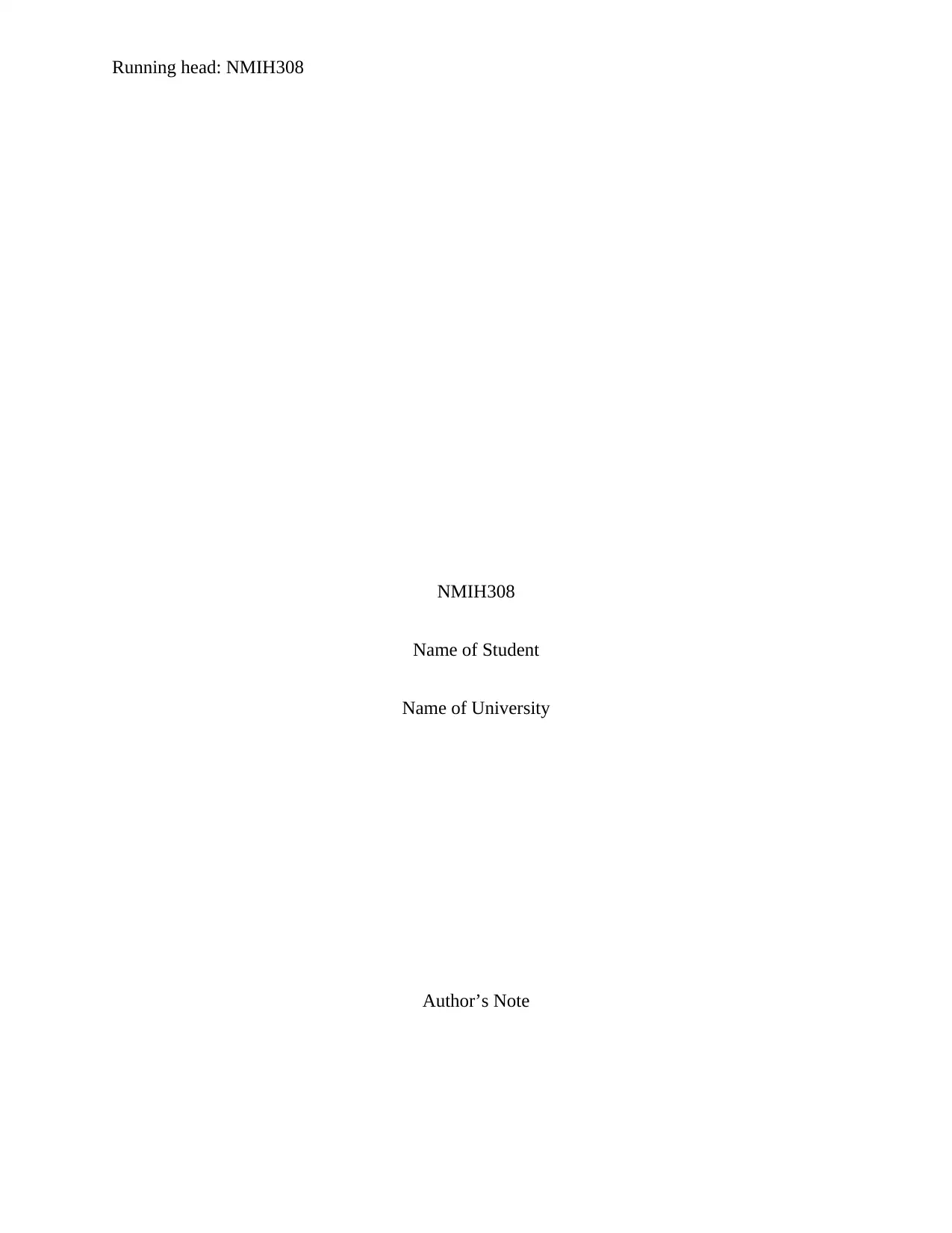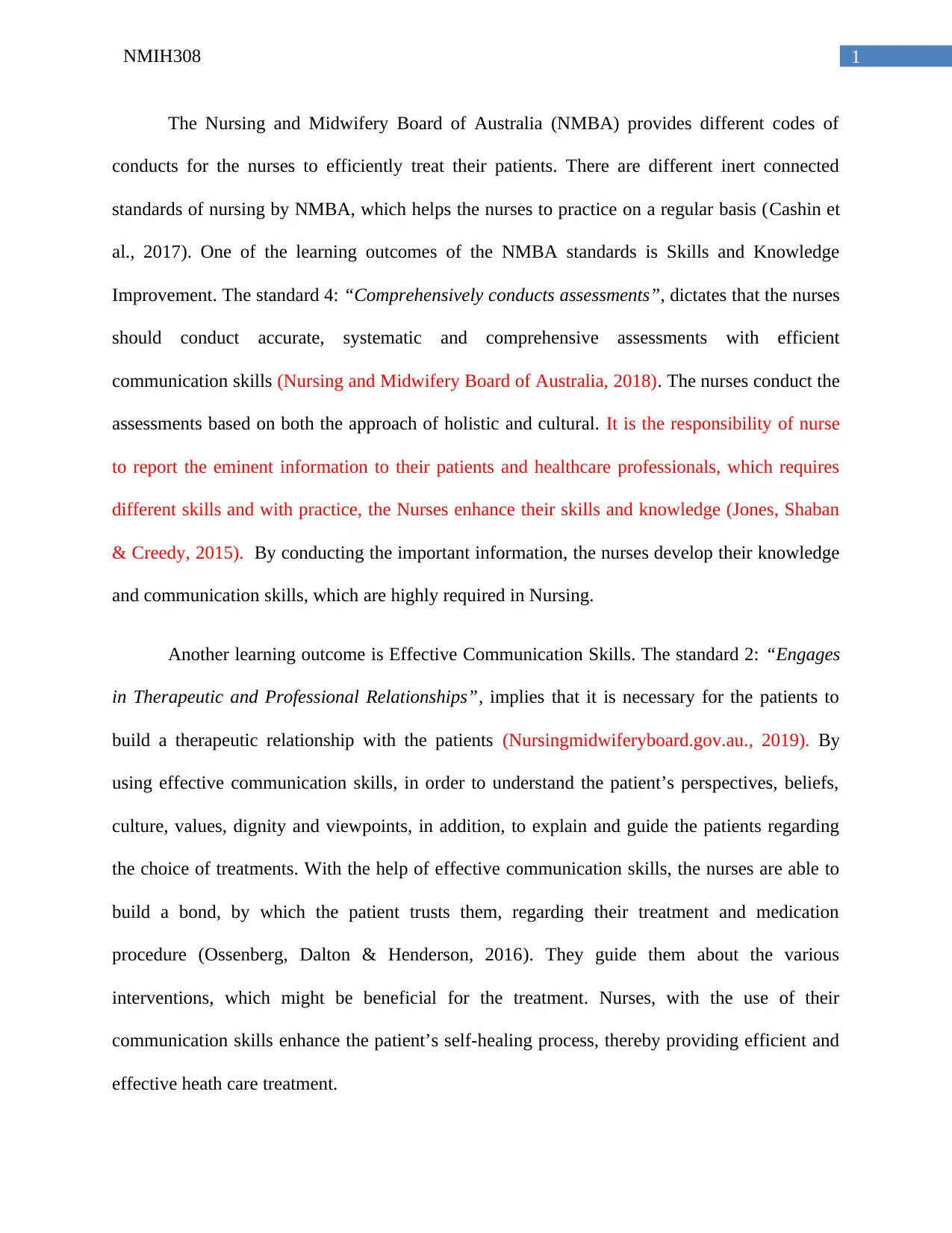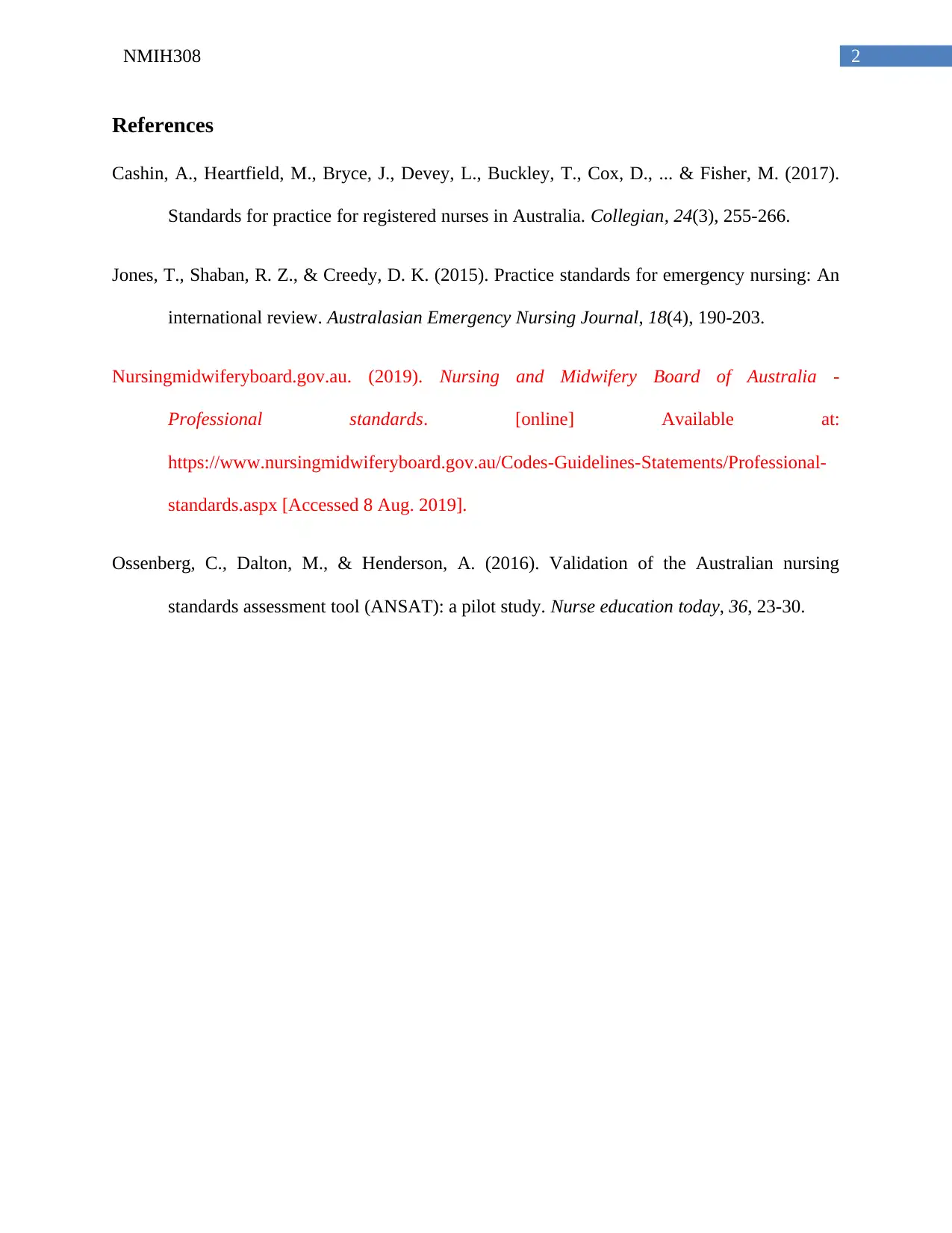NMIH308 Assignment: Analysis of NMBA Standards for Nursing Practice
VerifiedAdded on 2022/10/10
|3
|535
|221
Report
AI Summary
This report examines the Nursing and Midwifery Board of Australia (NMBA) standards of practice, specifically focusing on the application of these standards in nursing. It highlights two key learning outcomes: Skills and Knowledge Improvement, emphasizing the importance of comprehensive assessments conducted by nurses, and Effective Communication Skills, underscoring the need for nurses to build therapeutic and professional relationships with patients. The report details how nurses utilize these standards to enhance their knowledge, improve communication, and foster trust with patients. It emphasizes the importance of holistic and cultural approaches in patient care and the role of effective communication in explaining treatment options and promoting patient self-healing. The report references relevant literature to support its analysis, providing a comprehensive overview of the NMBA standards and their impact on nursing practice.
1 out of 3










![[object Object]](/_next/static/media/star-bottom.7253800d.svg)